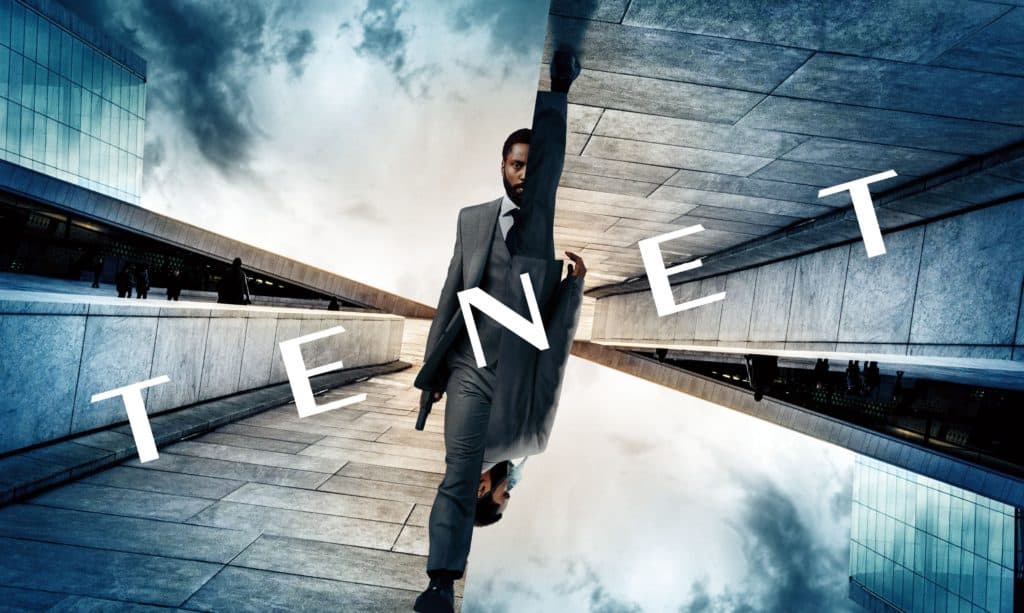I have no doubt that Tenet will remain in the grand discussion of films for a long time. Christopher Nolan has crafted a lofty, twisting, complex film that marries the mind-bending with mass appeal. This is a sci-fi spy thriller actioner that is one part James Bond and another part Predestination, delving into heady topics like our perception of time and the significance we place on ourselves. It also feels allegorical – like The Prestige before it, Tenet feels like another Nolan outing that serves as a metaphor of a creator. All in all, Tenet is as Christopher Nolan as a Christopher Nolan movie could be.
I also found it to be rather boring.
As much as Tenet is emblematic of Nolan’s talent as a filmmaker, it is also a culmination of his major weaknesses. Tenet is all about its grand ideas, so much so that it feels lost within its own grandeur. Sure, it’s a visual treat. On IMAX, Tenet’s action sequences and the terrific sound design can be an experience to cherish. But it is also a movie that sidelines characterisation and emotional payoff in order to get its ideas across. For once, it seems that this Nolan movie is far too complex and ambitious for its own good – a plate of pasta with so many ingredients that it forgot the salt.
But the real ingredient that is missing here is the soul. Christopher Nolan makes big films – films that are layered, which metaphors are woven into its big concepts. Yet they are, fundamentally, movies about people. From Memento to Dunkirk, Nolan’s signature isn’t just about exploring the concept of time, but weaving it into the ticking of flawed, broken people. This humanity allows Nolan’s films to prevail and engage beyond its occasional convolutedness. But this is missing in Tenet. The result is a cold film, alienating and distant.
Here’s the premise: our unnamed Protagonist (John David Washington), an operative, is recruited by a secret organisation to help stop an armageddon of sorts. Thing is, in the future (either near or far), someone has managed to invent a way to reverse the time polarity of objects. For one, it allows people to travel back and forth in time. For two, it reverses the cause and effect of things – an “inverted” gun sucks bullets in rather than expels them, for instance.
Naturally, a villain has figured out a way to use this “inversion” to kick-off World War III or something similarly apocalyptic. Alongside a newly-assigned partner named Neil (Robert Pattinson, easily one of the best parts of the film), our Protagonist finds that doomsday is tied to a Mumbai arms dealer (Dimple Kapadia) as well as the super-wealthy Ukrainian Andrei Sator (Kenneth Branagh). Sator, however, can only be accessed through his art dealer wife Kat (Elizabeth Debicki), who loathes Sator but is unable to leave him due to dire circumstances.
Conceptually, Tenet reminds me heavily of Inception. Like Nolan’s 2010 literal mind trip, Tenet wraps its heady concepts with a more digestible film genre. In Inception, it’s a heist film of the mind. In Tenet, it’s a spy thriller the likes of Mission: Impossible, only now Ethan Hunt can run backwards in time.
The core problem with Tenet is that it’s a movie that is almost entirely expository. As it has complex elements to break down, especially how the “inversion” works, Tenet spends a lot of time explaining things to its viewers. This is further compounded by the general structure of spy films, wherein its characters are often figuring out the next plan, or to set up the next set-piece.
Essentially, if the characters in Tenet aren’t talking about how the timey-wimey ball is rolling, they are talking about what they’re about to do next. Little time, then, is given to flesh them out as characters.
But why did Inception work for me where Tenet didn’t? Inception is similarly riddled with expository dialogue, and most of their characters are simple and underdeveloped – you know little of characters like Arthur, Eames and Ariadne. So why is Inception so enthralling to me where Tenet feels so disconnected?
The answer lies in their protagonists. Inception may be remembered mostly for its premise – a group of people tasked with hijacking the dream of their target so that they can plant an idea. But at its core, the movie is also about the struggles of its main character, Cobb, played by Leonardo DiCaprio. Cobb’s motivations are clear: he has One Last Score to make, because this is the one that will erase certain misdeeds of his past and allow him to finally see his children.
Beyond that, Inception is really about Cobb overcoming his personal, deep-seated issues in order to move forward. Here, the overarching concept of time and reality become intertwined with Cobb’s own inner plight: the guilt that he suppresses.
The Protagonist (as he is called) in Tenet, however, is a blank slate. While John David Washington has tremendous screen presence, his character exists as a board piece to simply move the game along. We begin and end the film without knowing who he is, nor his motives and desires. We just get an inkling of his, well, tenet, but that defines his character just as much as calling him The Good Guy.
The emotional core in Tenet, instead, is Kat, the beleaguered wife of Andrei Sator. One can certainly argue that her character arc is tied more satisfyingly to the movie’s theme surrounding Time – her conflict is of time lost and stagnation, being in a prison without bars. We know her desires, the thing that drives her forward. But Kat also arrives at the movie a little too late, and while her actions eventually lend agency to the plot, her relationship with the Protagonist and other characters aren’t deep enough to be engaging.
As a whole, this feels like Nolan had forgotten, or possibly chose to ignore, the humanity that drives his films. It’s there in his most beloved films – Memento isn’t just a movie with a gimmick of playing out backwards in sequence, but also a film that explores the sense of purpose that drives a man with no capability to form new memories. The Dark Knight is a battle of ideologies surrounding the nature of humanity, which culminates in the iconic ferry scene. Interstellar is a grand film set across space, but is also a film about a father’s love for his daughter, and the inherent fear of losing time with loved ones. In these films, their grand concepts serve the characters. In Tenet, the characters merely serve the concept.
I don’t believe that the ending shot of the top wobbling in Inception would be so iconic if its ambiguity didn’t relate to the ultimate fate of Cobb, a character that is shown to be flawed and human. Tenet ends with a huge revelation, but by then I found myself uncaring and cold.
I won’t deny the possibility that Nolan intended this. You don’t refer to your Protagonist with a capital P without intending the movie to be allegorical. Perhaps, with repeat viewings, and with more of its layers peeled back, I would be able to appreciate Tenet in all of its complexities. But for now, it’s just a cool movie without heart.
Also published on Medium.

makes it a life goal to annoy everyone with random Disney trivia. When he’s not staring at a screen or holding a controller of some sort, he is thinking about curry noodles. Like right now.




1 Comment
R
Nov 30, 2021 9:45 amYou miss the point.
The tragic friendship between Neil and Protagonist, where for 90%+ of their time together, one of them is completely unaware of their close partnership in a deadly struggle… this is overpoweringly sad. Bittersweet.
All those who accuse Tenet of lacking an emotional core… well, they should look in the mirror. The true fault is their own lack of capacity to understand what the movie truly presents (yes, with poignant subtlety but nonetheless real) in this relationship, doomed by time’s flow.